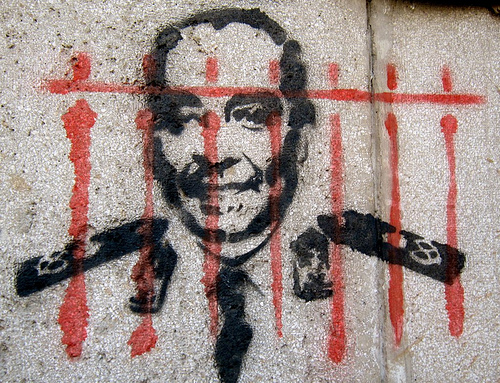
Although the SCAF was recently forced to back down from a proposal to exercise oversight over the process of writing Egypt’s next constitution, a new statement by General Mokhtar al-Mullah confirms that the SCAF is still intent on manipulating the content of the new charter to protect the interests of the military establishment. At a press conference on December 8, al-Mullah said that parliament’s authority to choose the 100-member assembly that will draft the constitution will be constrained by military-approved "parameters" agreed beforehand. Under the interim constitution ratified in March, the People’s Assembly was given exclusive control over the composition of the constituent assembly, but now the SCAF is asserting its right to intervene in the selection of the 100-member body.
As justification for this intervention, al-Mullah pointed to preliminary election results, which suggest that Islamists could occupy as many as 70 percent of the People’s Assembly seats. While al-Mullah acknowledged that "we are seeing free and fair elections," he nonetheless believes that voting under "unstable conditions" will distort the composition of the next parliament. And an unrepresentative parliament, he argues, cannot wield exclusive control over the constitutional process.
When Prime Minister Essam Sharaf’s embattled cabinet was forced to resign in late November, the status of the controversial set of draft constitutional it drafted — which would guarantee the military’s political and economic privileges in the new system — was left in limbo. Critics of the document hoped that the cabinet shakeup had left the proposal dead in the water, and the Muslim Brotherhood issued a stern warning to the new government that anyone intent on resuscitating the principles "would die with them."
But the public outcry doesn’t seem to have deterred the SCAF, and al-Mullah’s statement makes clear that the military is still determined to leave its mark on Egypt’s constitutional design.
Al-Mullah outlined a new roadmap for drafting the constitution, starting with the formation of a 35-member military-appointed civilian advisory council that will function as an intermediary between the SCAF, parliament and the cabinet. Although the SCAF has offered assurances that the advisory council will represent all political forces, the Brotherhood’s Freedom and Justice Party has already withdrawn its representative, citing misgivings about the advisory council’s anticipated intervention in the constitutional process.
Mara Revkin is the assistant director of the Rafik Hariri Center for the Middle East and editor of EgyptSource. She can be reached at mrevkin@acus.org.
Photo Credit: Gigi Ibrahim
Image: 5944759284_c73f43a3a6.jpg

